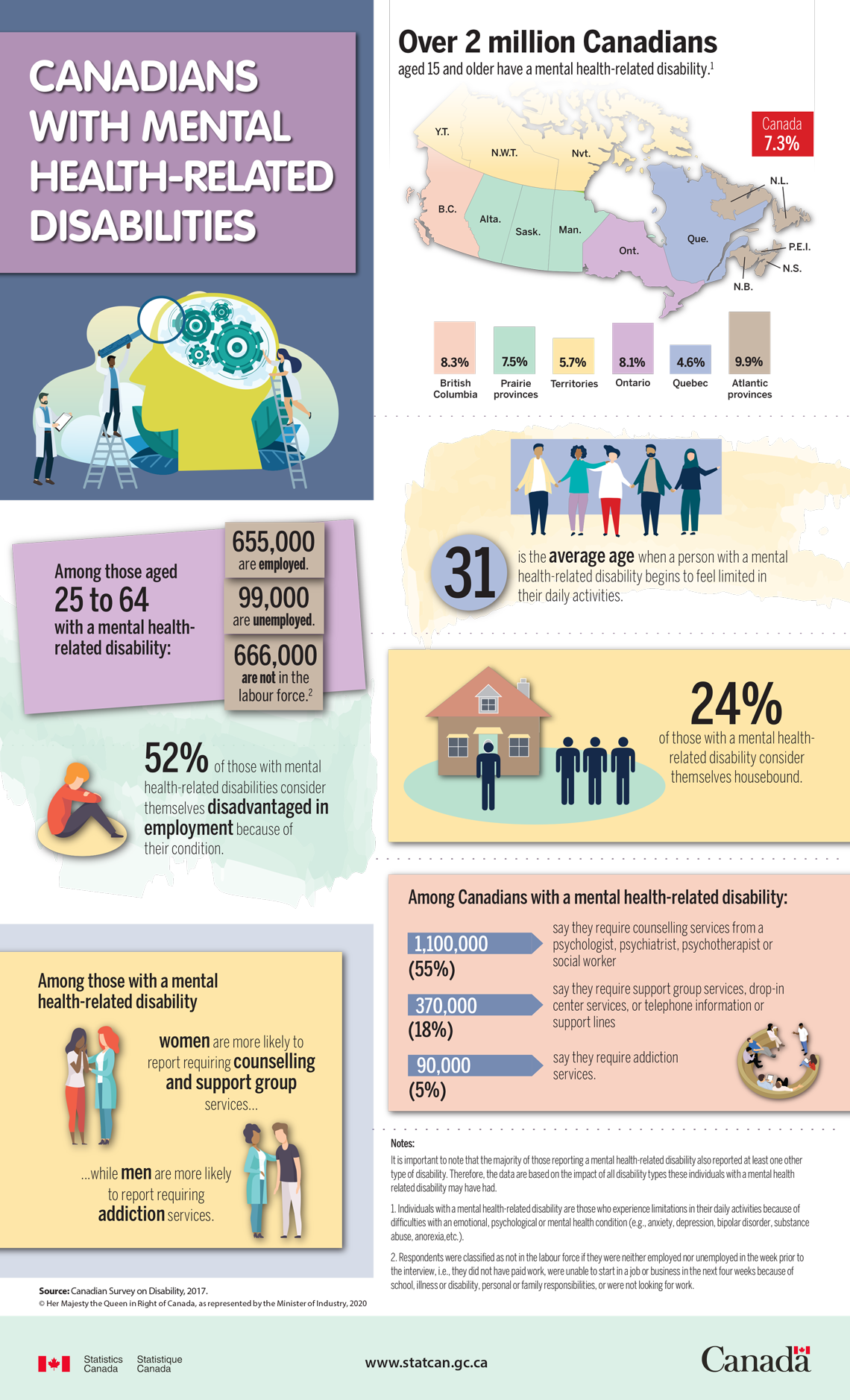Canadians with mental health-related disabilities
Archived Content
Information identified as archived is provided for reference, research or recordkeeping purposes. It is not subject to the Government of Canada Web Standards and has not been altered or updated since it was archived. Please "contact us" to request a format other than those available.

Description: Canadians with mental health-related disabilities
Over 2 million Canadians aged 15 and older have a mental health-related disability.Note 1
- Canada: 7.3%
- British Columbia: 8.3%
- Prairie provinces: 7.5%
- Territories: 5.7%
- Ontario: 8.1%
- Quebec: 4.6%
- Atlantic provinces: 9.9%
31 is the average age when a person with a mental health-related disability begins to feel limited in their daily activities.
24% of those with a mental health-related disability consider themselves housebound.
Among those aged 25 to 64 with a mental health-related disability:
- 655,000 are employed.
- 99,000 are unemployed.
- 666,000 are not in the labour force.Note 2
52% of those with mental health-related disabilities consider themselves disadvantaged in employment because of their condition.
Among Canadians with a mental health-related disability:
- 1,100,000 (55%) say they require counselling services from a psychologist, psychiatrist, psychotherapist or social worker.
- 370,000 (18%) say they require support group services, drop-in center services, or telephone information or support lines.
- 90,000 (5%) say they require addiction services.
Among those with a mental health-related disability, women are more likely to report requiring counselling and support group services, while men are more likely to report requiring addiction services.
Notes
It is important to note that the majority of those reporting a mental health-related disability also reported at least one other type of disability. Therefore, the data are based on the impact that all disability types these individuals with a mental health-related disability may have had.
Source: Canadian Survey on Disability, 2017.
- Date modified:
